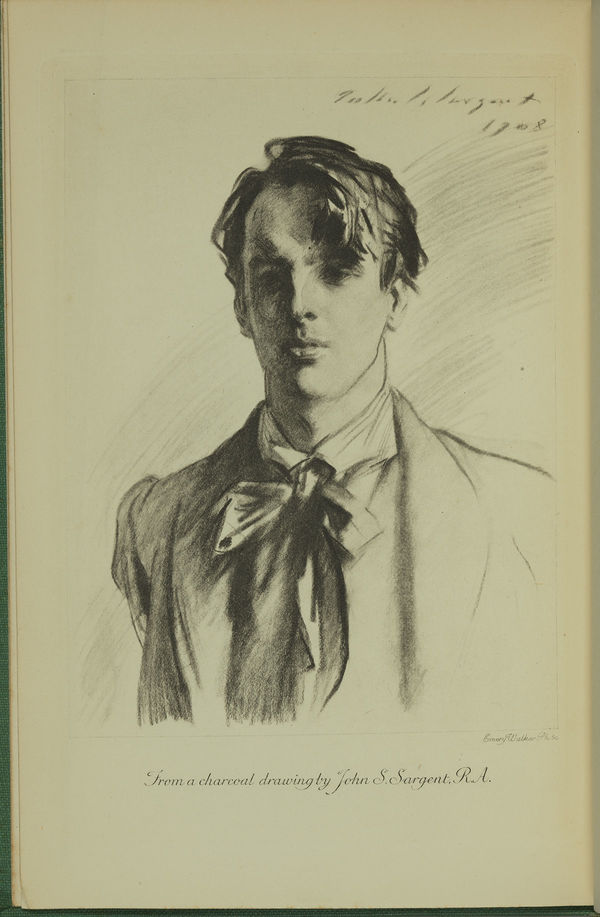
With a lecture by Professor James Flannery of Emory University on Wednesday, 26 October on the "total theatre" of William Butler Yeats, the Institute formally launches its Yeats Initiative, dedicated to reinvigorating the study and appreciation of one of Ireland's most prolific and influential poets and dramatists.
Yeats is perhaps most well known for his poem "The Second Coming." Written in 1919, the lines Things fall apart; the centre cannot hold . . . have been quoted many times since in times of turmoil.
Yeats visited Notre Dame twice—in 1904 and 1933.
Yeats was at the center of numerous artistic and political movements in Ireland and England starting in the late 19th century and into the early 20th century. He was at an early meeting of what would become Sinn Fein. He founded the Irish National Theatre Company. He served as a Senator in the early years of the Free State. And, of course, in 1923 he won the Nobel Prize for literature. Indeed, it is difficult to grapple with the history of Ireland or history of Anglo literature in the 20th century and not encounter WB Yeats. But this actually misses the most exciting point of our initiative.
Yeats and the Irish Dramatic Movement had an outsized influence on world literature and theatre when considering the small island from which they came. Indeed, the widening gyre of Yeats's influence can be detected across the globe. In America, whether we look at Eugene O'Neill or Lorraine Hansberry, we can find strong traces of the Irish Dramatic Movement. In Nigeria, both Chinua Achebe and Wole Soyinka acknowledge Yeats and his colleagues in the Irish National Theatre as an influence on their works.
The Yeats Initiative at Notre Dame is an opportunity to grapple with the complex legacy of Yeats and his influence on world literature and theatre. It is an opportunity to explore the affinities, convergences, and disparities between Yeats and the current state of literature and theatre.
The Institute's faculty fellows, along with colleagues in English, Film, Television and Theatre, and Music, will shape the Institute's Yeats Initiative.
Dr. Colleen Taylor, the first Yeats postdoctoral fellow, began at the Institute in Fall 2022. She is embarking on a new project that examines Irish culture through the lens of "the blue humanities."
Dr. Julian Breandán Dean, Program Manager, Literature Initiatives, at the Keough-Naughton Institute, is teaching an undergraduate course this Fall 2022 term on world drama that incorporates Yeats' plays. He is also leading a Fall 2022 Yeats reading group for Notre Dame graduate students and is the administrative lead in the Institute for the Initiative.
Now available for viewing in the Hesburgh Library's Special Collections Room, Irish Studies Librarian Aedín Ní Bhróithe Clements has curated an exhibit of some of Yeats' most famous works.
We invite scholars from all disciplines interested in exploring Yeats and his legacy to join us as we embark on this new endeavor.
Yeats often feared that he could not find or develop an audience who would appreciate his increasingly avant-garde theatre. To alter a phrase the literary critic Richard Ellmann used to describe James Joyce: It is perhaps true that, 100 years later, we are still learning to be Yeats's audience.
______________
Image:
Portrait of W. B. Yeats after John Singer Sargent. Frontispiece, Yeats, W. B. The Poems. London: Macmillan, 1921.
Hesburgh Libraries, Irish Studies Collection